Indifference reigns in India ahead of King Charles's coronation
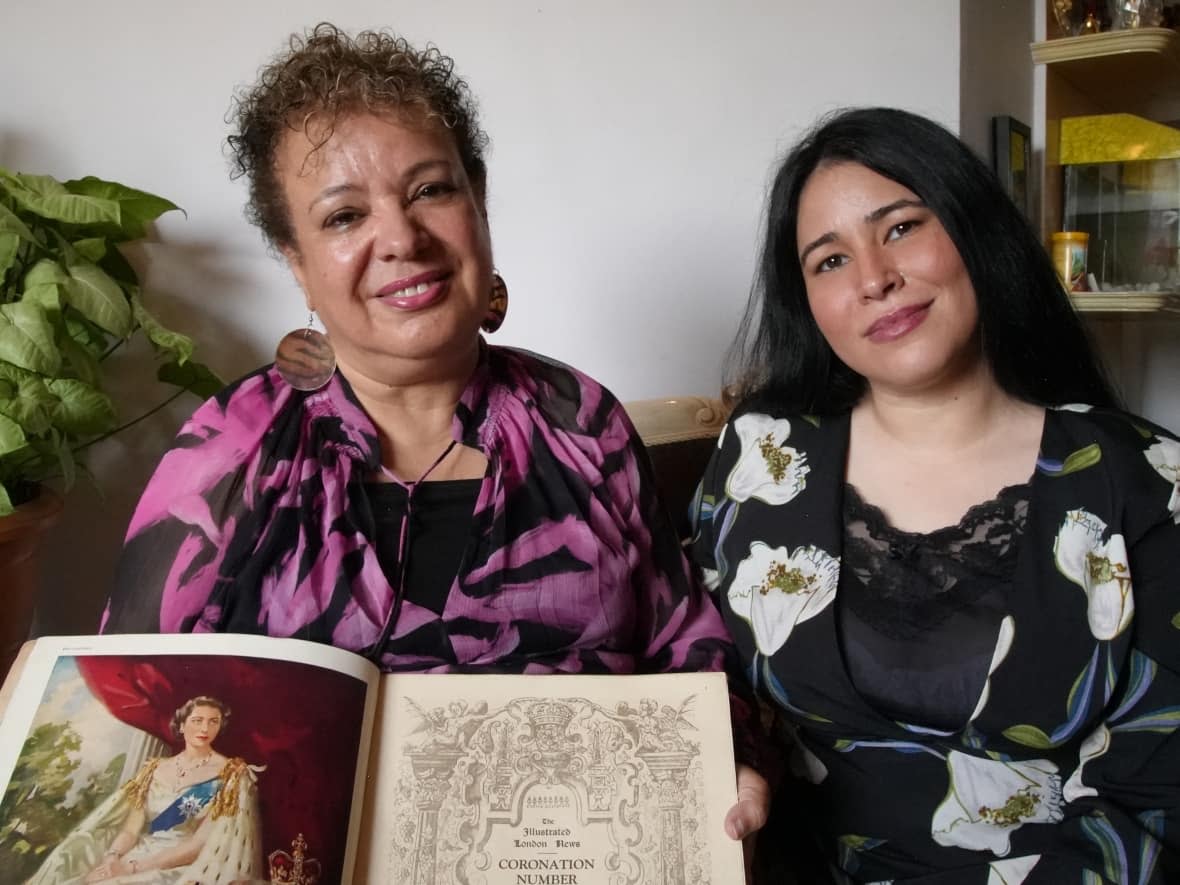
As Sarvar Irani sifts through the many piles of royal memorabilia stashed in her Mumbai flat, she has one major thought: that she needs to get more souvenirs of Charles, the new King.
"I've only now started collecting on Charles," she told CBC News. "Until now it was mainly Queen Elizabeth."
The 62-year-old has been tracking down commemorative tokens for decades now, primarily books, but also stamps, coins and plates that focus on everything about the British royals.
Irani's fascination has always been centred on the queen, whose fashion sense and love for corgis made the Mumbai native smile, but now she is looking forward to Charles's time as monarch.
"I was thinking, when would he get the chance to be King? Now at least we'll see what more he can do," she told CBC News.
"He has to catch up with [the Queen]," Irani continued. "But I'm sure he will also do well because he's seen his mother and he's seen how the people loved his mother because of what she was."
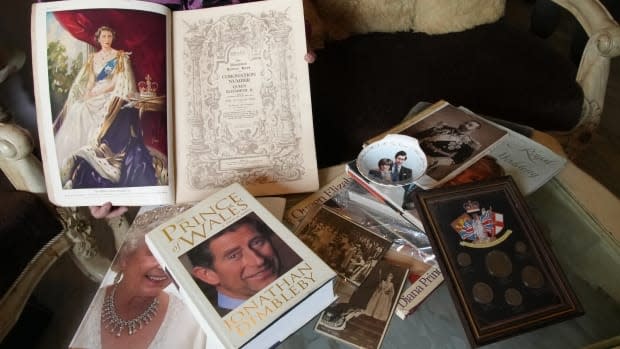
That warm feeling toward the British royal family is far from universal in India, where many are indifferent about seeing a new King crowned, half a world away.
"The royals have never interested me in any way," said Cyrus Appoo, as he walked into a Mumbai coffee shop.
He shrugged before offering his thoughts on Charles. "The Queen was there for so long, I didn't think he was ever going to be King. He's got his chance, so let's see."
Others still see the monarchy through the lens of India's colonial past, subjugated under the British Raj.
Irani has heard that sentiment from some around her who were puzzled by her need to collect royal memorabilia.
"Most of them would say … 'look at how India was [treated].' I said, 'forget all that.'"
WATCH | India's stolen treasures on display in Britain
But it's hard to forget for many Indians.
Nothing represents the rancour of imperial plunder like the infamous Koh-i-Noor diamond, seized by the East India Company in 1849 when the Punjab was annexed and later gifted to Queen Victoria. It's now part of the crown jewels and on display in London.
In a subtle acknowledgement of the controversy and ill-feeling surrounding the diamond in India, and in other countries such as Iran, Pakistan and Afghanistan which also lay claim to the jewel, Buckingham Palace announced in February the Koh-i-Noor would not be featured as part of the coronation ceremonies.
It will instead be part of a Tower of London exhibition mere weeks after the coronation, featured as a "symbol of conquest."
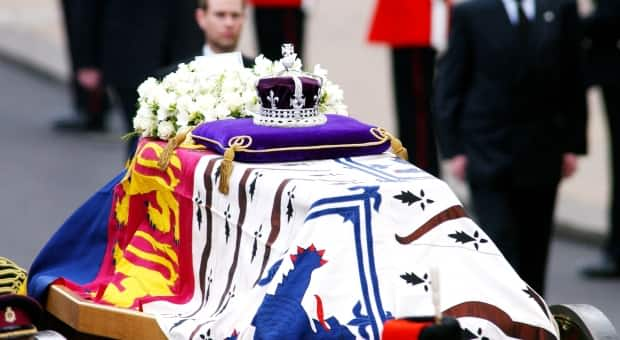
The announcement of the Koh-i-Noor's absence from Saturday's ceremonies was welcomed on social media but the online conversation in India quickly turned to a crucial question: why not return it?
'You should be ashamed'
For Vijay Kumar, one of the co-founders of the India Pride Project which uses a crew of volunteers to painstakingly track down cultural artifacts looted from India that are housed in museums in the West, the diamond is an insulting reminder of past wrongs.
"You cannot proudly display a looted object and on top of it, collect fees," Kumar said. "You should be ashamed," he added, referring to the United Kingdom.
Still, for the man who works tirelessly to negotiate the return of hundreds of stolen Indian idols, the precious diamond is little more than a symbol.
"The Koh-i-Noor is just a stone to me. Our gods are priceless."
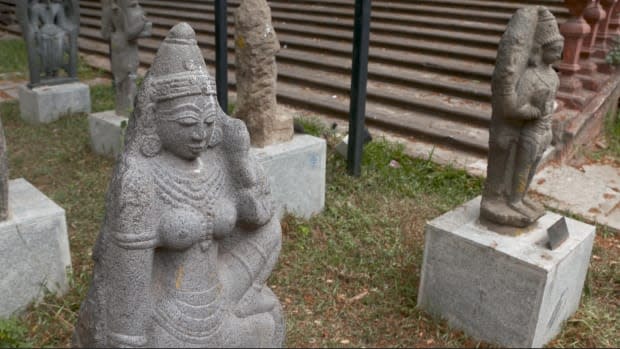
That same sentiment courses through one of the temples waiting for its revered statue to be returned.
The 15th century bronze was snatched from the Sundara Perumal Temple in Kumbakonam, in India's southern Tamil Nadu state, in 1957 and turned up at Oxford's Ashmolean museum soon after, where it's been displayed ever since. A sign was recently added to the display, acknowledging that it may have been stolen but the bronze remains at the museum, despite ongoing negotiations for its return.
"We have to get him back, we believe only then will the temple get its life back," the temple's priest Aaravamudan, 33, told CBC News in an interview, describing the helpless feeling of waiting for word on the sacred idol's whereabouts and whether it will ever be restituted.
"Without his presence, the temple has lost all its glory."
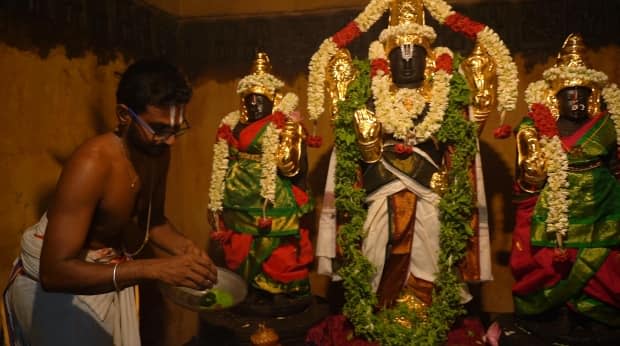
'Not paying that much attention'
But the reigning feeling across India in the days leading up to the coronation is not anger — it's indifference.
This, despite King Charles's declared love for India, which he has visited 10 times, and his work with the British Asian Trust charity he helped create, which helps the disadvantaged across South Asia.
Mumbai resident Abhishek Deshwal had no idea the coronation was even happening.
"It's just wasting taxpayers' money, maintaining a palace and the royal family's expenses and all," Deshwal said, adding he has no real opinion on Charles as King.
"You have an opinion on a person who does something or creates policy," Deshwal said, dismissively. "But he's just a figure, a nominal head, so we can't have an opinion of him."
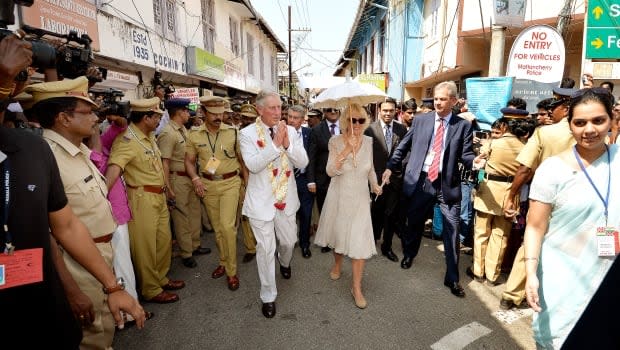
Others on the streets of Mumbai's Bandra neighbourhood were quick to respond when asked if they were paying attention to the fact Charles was about to be officially crowned
"Not at all. Everybody's just focused on sports and the Met Gala," Sonia Kathi told CBC News, before rushing off.
Shifa Malik, 19, politely took pains to explain why the coronation didn't matter to her and her friends.
"We Indians are not paying that much attention to the royal family," Malik said, especially young people.
"But I think Charles is a good King? Maybe?" she added.


